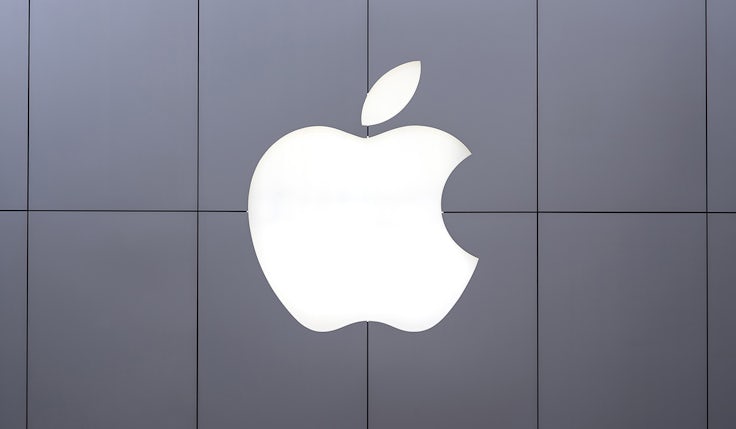‘Vulnerability is courage’: Marketers shine a light on the ‘hidden trauma’ of miscarriage
AXA XL global brand director Allison Beattie is determined to smash the taboos surrounding miscarriage to help others get the support they need.

Scores of women and men in workplaces across the UK are living with the trauma of baby loss, in many cases without their colleagues ever knowing.
The psychological impact is huge. Research from pregnancy and baby charity Tommy’s found bereaved parents grapple with anxiety, depression and post-traumatic stress disorder (PTSD) following baby loss, with men nearly twice as likely to suppress their distress.
Evidence submitted by the Miscarriage Association to the Women and Equalities Committee earlier this year found 29% of women who experienced a miscarriage or ectopic pregnancy displayed symptoms of PTSD after one month, while 23% were still experiencing PTSD three months later.
The data reflects the ordeal of returning to work. In many cases, the loss is never recognised, as bereaved parents feel like they can’t tell their employers they were even trying to conceive for fear of being sidelined, demoted or made redundant.
This is something Allison Beattie, global brand director at global commercial insurance business AXA XL, is determined to change.
I knew something had to change, because I was like: ‘I’m not going to sit here and feel embarrassed that I have just lost a baby.’
Allison Beattie, AXA XL
She believes the parenthood journey starts long before giving birth, with the decision to conceive. Indeed, Beattie argues conversations in the workplace about pregnancy are currently missing “80%” of the story.
“Motherhood, from my perspective anyway, actually starts when you start trying for a baby. Your mindset just shifts. Motherhood encompasses fertility, miscarriage, even though you might not have a live, screaming baby in your arms. That’s when it starts,” she states.
This is an opinion defined by personal experience. Prior to her first miscarriage, Beattie had no real awareness of baby loss. It had taken a while to conceive, but once falling pregnant, she was excited. Early scans suggested the baby was healthy and despite some bleeding she wasn’t concerned. However, a trip to the doctor and a new scan found no heartbeat. The diagnosis hit Beattie like a “tonne of bricks”.
“What really struck me in that moment was the feeling that it wasn’t grief. I was so embarrassed. I was so ashamed. I didn’t know what to say to people. We had told friends; we were so excited,” she recalls.
“When I felt that that’s when I knew something had to change, because I was like: ‘I’m not going to sit here and feel embarrassed that I have just lost a baby.’”
The miscarriage resulted in Beattie undergoing emergency surgery a month later, which required three weeks in hospital and an immediate step back from work – yet another “massive hit” to endure.
“That was the turning point for me. I shared why I was off, because I didn’t want people to think I was off because of stress or whatever it might be,” she explains. “I was really open, which is really hard.”
After telling her story Beattie received many messages from other mothers, both inside and outside the business, about their experience of miscarriage. One mother, a senior leader whose two grown-up children are now at university, had never discussed her “hidden trauma” before. The fact these women confided in Beattie made her even more determined to push for change.
‘There’s no buffer’: One founder on why mothers are being failed
Sadly, after her initial experience of miscarriage, Beattie went on to lose subsequent pregnancies. The recurrent trauma left her feeling “desensitised” and living in “constant fear”.
“I personally didn’t believe my baby was going to come out alive, because I was so used to failure. So, every time you go to the bathroom, you have anxiety attacks. You’re looking out for blood. But that bit isn’t talked about. Why are we hiding this bit of the story?” she asks.
“It’s really hard when every time I went to the bathroom, probably for two years, I was having anxiety attacks because I was looking for blood. I was looking for something wrong. Layer that over a working day, which can be eight-plus hours and you’re around your colleagues for all this time.”
Amid the stress of miscarriage, her existing trauma and the pressure of undergoing fertility support, Beattie confided in her colleagues about what was happening. The response from the team was “amazing”.
Of course, Beattie knows from peers in other leadership roles the toll it takes on both their careers and mental health when women don’t feel like they can tell their employer they’ve suffered a miscarriage.
However, she firmly believes these are uncomfortable conversations society needs to have.
“It just takes one person to be able to say this is what’s happening. It’s not about being top down or bottom up, or where it comes from. I just think it takes that one person to start the conversation, because having said something, the amount of people who have come to me is wild,” Beattie shares.
She found the messages from people sharing their experiences of miscarriage therapeutic rather than re-traumatising, offering a way to normalise the conversation.
“The more common these conversations are, it doesn’t desensitise it, it increases knowledge. You might learn something that we might not be learning ourselves, but it’s really therapeutic to be able to continue talking,” Beattie adds.
“It puts a lot of light on what’s happened, because again we’re not meant to talk about this stuff.”
A vicious circle
Given the supportive culture within her team at AXA, Beattie found her return to work after maternity leave relatively smooth. However, the process was phased as the day she was meant to return, she suffered another miscarriage. Her team knew everything and as a result Beattie says she felt “really supported”.
The amount of trauma she experienced just getting to the point of giving birth left her with “a fire” to drive change, armed with a belief that the ability to demonstrate vulnerability is a strength.
“Just because you’re on a fertility journey or you’re pregnant, it doesn’t make you any less at a job. There’s that fear; I had it. I didn’t want to be seen as ‘I’m just going to be on maternity leave for the rest of my life now.’ But actually, it makes you a lot stronger,” says Beattie.
“[American academic] Brené Brown talks about leadership and how vulnerability is courage. By being more open, it’s allowed me to work a lot better and be a lot closer with teammates, because it’s hard to be something that you can’t be at work when you’re so stressed about something else in the background.”
Motherhood encompasses fertility, miscarriage, even though you might not have a live, screaming baby in your arms.
Allison Beattie, AXA XL
Throughout the process, she has received unwavering support from her manager, AXA XL chief communications and brand officer Sinead Finlay. Having worked as a senior leader for many years, Finlay also points out the impact miscarriage has on fathers, who often feel silenced and unable to discuss their sadness.
Evidence submitted to the Women and Equalities Committee found women felt their partners tend to be “forgotten about” after a pregnancy loss, often repressing their grief with no support from their employer.
After talking openly about her experiences, Beattie found men reached out to share their stories about the hidden pain of baby loss.
On a practical level, both Finlay and Beattie agree having policies in place to support all parents is crucial. AXA offers fertility treatment leave and two weeks miscarriage leave.
While she welcomes companies putting policies in place, for Beattie the bigger issue is feeling comfortable enough to tell your employer about your miscarriage in the first place in order to access help.
From a career perspective, the long-tail impact is considerable. Analysis from the Office for National Statistics published in June found women who have experienced miscarriage have “reduced likelihood of employment” in the year and a half after their loss. Such is the enduring trauma that in the five years following miscarriage, women earn on average £4,101 less than before losing their baby.
‘Support not special treatment’: Marketers on navigating pregnancy at work
Sick leave is an “inappropriate and inadequate” form of support in the aftermath of a miscarriage, according to the Women and Equalities Committee, as it does not afford women “adequate confidentiality or dignity” and puts them at “high risk of employment discrimination”.
Furthermore, the committee found the low level of statutory sick pay means many women and their partners cannot afford to take the time off they need, risking their wellbeing and future work prospects.
The case for a minimum standard of miscarriage support is “overwhelming”, argued the committee. Following this statement, the government confirmed in July parents who experience a miscarriage before 24 weeks of pregnancy will be entitled to bereavement leave thanks to a proposed change to the law.
Employers need to care about miscarriage, argues Beattie, in terms of employee attraction, retention and growth. When parents aren’t supported or feel like they can’t be open, it leads to heightened stress, extended periods of leave and feelings of disconnection from the company, she explains.
“If you’re looking to create diversity and inclusion in a company, and you want to be able to support that woman to grow and become a senior leader, you have to make sure you incite the culture internally,” says Beattie.
The only way to inspire change is to be open and transparent, she insists, especially as comfort is often found through shared experience.
“Conversations can only be had if you’re more open and you can only be more open if you feel comfortable to be open in the workplace. It’s this vicious circle,” she adds.
“For the people who don’t feel like they can do anything, my heart goes out to them and that’s why it’s so important to try to make change.”







